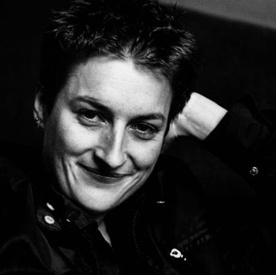A Quote by William Shakespeare
Let still woman take An elder than herself: so wears she to him, So sways she level in her husband's heart, For, boy, however we do praise ourselves, Our fancies are more giddy and unfirm, More longing, wavering, sooner to be lost and warn, Than women's are.
Related Quotes
A mother experiences more than one death, even though she herself will only die once. She fears for her husband; she fears for her children; again she fears for the women and children who belong to her children. ... For each of these-whether for loss of possessions, bodily illness, or undesired misfortune-she mourns and grieves no less than those who suffer.
But when did you see her, talk to me? When did you see her go into the cave? Why did you threaten to strike a spirit? You still don't understand, do you? You acknowledged her, Broud, she has beaten you. You did everything you could to her, you even cursed her. She's dead, and still she won. She was a woman, and she had more courage than you, Broud, more determination, more self-control. She was more man than you are. Ayla should have been the son of my mate.
I saw the way she was looking at you, and I knew that she still loved you. More than that, I know she always will. It breaks my heart, but you know what? I'm still in love with her, and to me that means that I want nothing more than for her to be happy in life. I want that more than anything. It's all I've ever wanted for her.
Sydney discovers that she minds the loss of her mourning. When she grieved, she felt herself to be intimately connected to Daniel. But with each passing day, he floats away from her. When she thinks about him now, it is more as a lost possibility than as a man. She has forgotten his breath, his musculature.
I'll never forget the first time Davram took me by the scruff of my neck and showed me he was the stronger of us. It was magnificent! If a woman is stronger than her husband, she comes to despise him. She has the choice of either tyrannizing him or else making herself less in order not to make him less. If the husband is strong enough, though, she can be as strong as she is, as strong as she can grow to be.
There was a warmth of fury in his last phrases. He meant she loved him more than he her. Perhaps he could not love her. Perhaps she had not in herself that which he wanted. It was the deepest motive of her soul, this self-mistrust. It was so deep she dared neither realise nor acknowledge. Perhaps she was deficient. Like an infinitely subtle shame, it kept her always back. If it were so, she would do without him. She would never let herself want him. She would merely see.
I like woman who doesn't necessarily care if other people like her. She is she who she is and figures people can take it or leave it. What I do like is a woman who has the guts to tell exactly as she feels. It's not appealing when a woman dresses to please a man. It's way more attractive if she has her own distinct style and wears what she feels best in.
Nora leaves her husband, not-as the stupid critic would have it-because she is tired of her responsibilities or feels the need of woman's rights, but because she has come to know that for eight years she had lived with a stranger and borne him children. Can there be anything more humiliating, more degrading than a life-long proximity between two strangers? No need for the woman to know anything of the man, save his income. As to the knowledge of the woman-what is there to know except that she has a pleasing appearance?
In fact her maturity and blood kinship converted her passion to fever, so it was more affliction than affection. It literally knocked her down at night, and raised her up in the morning, for when she dragged herself off to bed, having spent another day without his presence, her heart beat like a gloved fist against her ribs. And in the morning, long before she was fully awake, she felt a longing so bitter and tight it yanked her out of a sleep swept clean of dreams.
Yet losing him seemed unbearable. He was the one she loved, the one she would always love, and as he leaned in to kiss her, she gave herself over to him. While he held her close, she ran her hands over his shoulders and back, feeling the strength in his arms. She knew he’d wanted more in their relationship than she’d been willing to offer, but here and now, she suddenly knew she had no other choice. There was only this moment, and it was theirs.





































